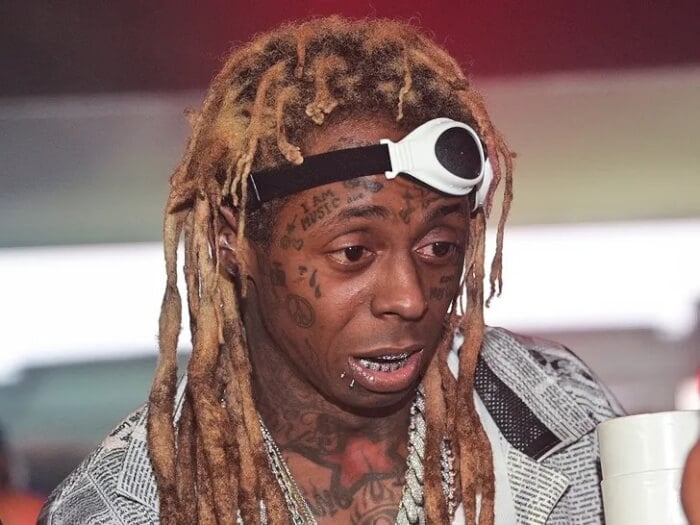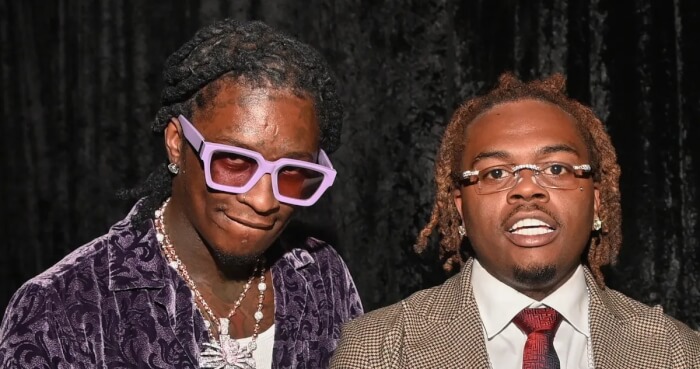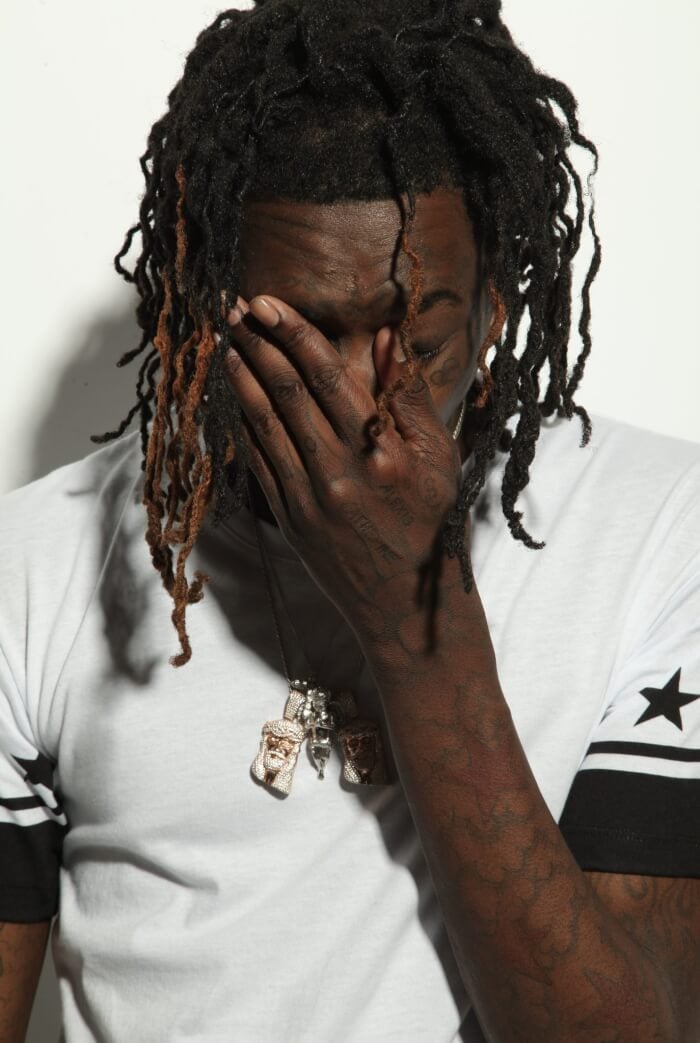Young Thug and Gunna Case: All Updated Information And Explanation
Young Thug pleaded guilty on June 12 while in jail. In a recorded speech played at Hot 97's Summer Jam, he said, "You know, this isn't about just me or YSL." "I always use music as a way to express my creativity, and I now realize that Black rappers and artists don't have the same freedom. Please sign the petition to protect black art, and keep us in your prayers. I love you all, he said.
A little over seven months after his arrest in May, Gunna walked free on December 14. The rapper pleaded guilty to a charge of racketeering conspiracy in what is known as an Alford plea — a deal that allows him to plead guilty if it’s in his interest while maintaining his innocence. His five-year sentence was commuted to time served and 500 hours of community service in the deal. Young Thug is awaiting his January trial from behind bars. Here’s everything you need to know about the case, updated as it develops, from the people involved to a summary of the charges and the lyrics cited.
Fani Willis is the district attorney overseeing the case. She is a Democrat known for investigating whether the former president Trump and his team engaged in election fraud in Georgia. “It does not matter what your notoriety is or what your fame is. If you come to Fulton County, Georgia, you commit crimes, and certainly if those crimes are in furtherance of a street gang, then you are going to become a target and a focus of this district attorney’s office, and we are going to prosecute you to the fullest extent of the law,” Willis said in a May 10 press conference. She said has reason to believe that gangs “are committing conservatively 75 to 80 percent of all the violent crime that we’re seeing within our community. And so they have to be booted.”
Brian Steel, Young Thug’s lawyer, told the New York Times that YSL is not a criminal street gang. “Mr. Williams came from an incredibly horrible upbringing, and he has conducted himself throughout his life in a way that is just to Marvel at,” Mr. Steel said. “He’s committed no crime whatsoever.” Gunna’s guilty plea serves as a public acknowledgement of his “association with YSL,” the rapper said in statement, though he emphasized that his association is purely musical. He maintains his innocence despite the plea. “While I have agreed to always be truthful, I want to make it perfectly clear that I have NOT made any statements, have NOT been interviewed, have NOT cooperated, have NOT agreed to testify or be a witness for or against any party in the case and have absolutely NO intention of being involved in the trial process in any way,” Gunna told WSB and other outlets in a statement.
What’s clear is that Fulton County continues to conflate gang activity with rap music and has not signaled a change in policy. “The optics look like gang stuff,” Lance Williams, a professor at Northeastern Illinois University, told The New Yorker. “It looks ugly. But the reality is that most of it is just music. If there’s violence, it’s interpersonal — not organized.” He was troubled by the use of the RICO law, which, in his words, is a “thing created for the Mafia now being used to indict young Black males who are flirting with the culture and the music, but who are not involved with any criminal enterprise.” He continued, “Once they hit you with this RICO thing, you’re finished. It’s a wrap.”
When asked about the proposed Georgia state bill to limit the use of rap lyrics as evidence in criminal proceedings, Fulton County district attorney Fani Willis said she doesn’t think the legislation would be successful. “I think if you decide to admit your crimes over a beat, I’m going to use it,” Willis told reporters at an August 29 press conference before quoting lyrics about alleged criminal activity that are cited in the indictment. “Now I’m using those lyrics that they’re admitting to doing that. I’m going to continue to do that; people can continue to be angry about that,” Willis said. “I have some legal advice: Don’t confess to crimes on rap lyrics if you don’t want them used, or at least get out of my county.” While Willis has vowed to continue to use lyrics as evidence, legislators on both the state and federal levels have introduced bills to limit their use.
Aubtu.biz is a website that provides you with entertainment updates and creative ideas to brighten your day. Don’t hesitate to visit our site to know more about updated celebrity and entertainment news.
A little over seven months after his arrest in May, Gunna walked free on December 14. The rapper pleaded guilty to a charge of racketeering conspiracy in what is known as an Alford plea — a deal that allows him to plead guilty if it’s in his interest while maintaining his innocence. His five-year sentence was commuted to time served and 500 hours of community service in the deal. Young Thug is awaiting his January trial from behind bars. Here’s everything you need to know about the case, updated as it develops, from the people involved to a summary of the charges and the lyrics cited.
1. Young Thug and Gunna: Who is involved?
 Source: Vulture
Source: Vulture
Fani Willis is the district attorney overseeing the case. She is a Democrat known for investigating whether the former president Trump and his team engaged in election fraud in Georgia. “It does not matter what your notoriety is or what your fame is. If you come to Fulton County, Georgia, you commit crimes, and certainly if those crimes are in furtherance of a street gang, then you are going to become a target and a focus of this district attorney’s office, and we are going to prosecute you to the fullest extent of the law,” Willis said in a May 10 press conference. She said has reason to believe that gangs “are committing conservatively 75 to 80 percent of all the violent crime that we’re seeing within our community. And so they have to be booted.”
Brian Steel, Young Thug’s lawyer, told the New York Times that YSL is not a criminal street gang. “Mr. Williams came from an incredibly horrible upbringing, and he has conducted himself throughout his life in a way that is just to Marvel at,” Mr. Steel said. “He’s committed no crime whatsoever.” Gunna’s guilty plea serves as a public acknowledgement of his “association with YSL,” the rapper said in statement, though he emphasized that his association is purely musical. He maintains his innocence despite the plea. “While I have agreed to always be truthful, I want to make it perfectly clear that I have NOT made any statements, have NOT been interviewed, have NOT cooperated, have NOT agreed to testify or be a witness for or against any party in the case and have absolutely NO intention of being involved in the trial process in any way,” Gunna told WSB and other outlets in a statement.
2. What does Lil Wayne have to do with the case?
 Source: The NY times
Source: The NY times
3. How are song lyrics being used as evidence?
 Source: Vulture
Source: Vulture
4. What’s 300 Entertainment’s involvement?
 Source: Vulture
Source: Vulture
5. Gunna and Young Thug are in jail until when?
 Source: The NY times
Source: The NY times
What’s clear is that Fulton County continues to conflate gang activity with rap music and has not signaled a change in policy. “The optics look like gang stuff,” Lance Williams, a professor at Northeastern Illinois University, told The New Yorker. “It looks ugly. But the reality is that most of it is just music. If there’s violence, it’s interpersonal — not organized.” He was troubled by the use of the RICO law, which, in his words, is a “thing created for the Mafia now being used to indict young Black males who are flirting with the culture and the music, but who are not involved with any criminal enterprise.” He continued, “Once they hit you with this RICO thing, you’re finished. It’s a wrap.”
When asked about the proposed Georgia state bill to limit the use of rap lyrics as evidence in criminal proceedings, Fulton County district attorney Fani Willis said she doesn’t think the legislation would be successful. “I think if you decide to admit your crimes over a beat, I’m going to use it,” Willis told reporters at an August 29 press conference before quoting lyrics about alleged criminal activity that are cited in the indictment. “Now I’m using those lyrics that they’re admitting to doing that. I’m going to continue to do that; people can continue to be angry about that,” Willis said. “I have some legal advice: Don’t confess to crimes on rap lyrics if you don’t want them used, or at least get out of my county.” While Willis has vowed to continue to use lyrics as evidence, legislators on both the state and federal levels have introduced bills to limit their use.
Aubtu.biz is a website that provides you with entertainment updates and creative ideas to brighten your day. Don’t hesitate to visit our site to know more about updated celebrity and entertainment news.
Share this article
Advertisement